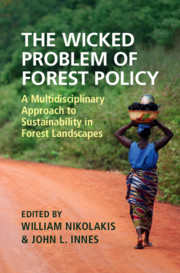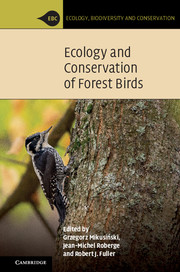The Wicked Problem of Forest Policy
Forests play an important role in resolving global challenges such as sustainable development, climate change, biodiversity loss, and food and water security. Stopping deforestation is crucial for the future of our planet. Global efforts to curb deforestation, have been partially successful, but have largely fallen short. At the same time, national level efforts to support human development, reflected in the United Nations (UN) Sustainable Development Goals, aim to increase the welfare and wellbeing of populations living in poverty. Meeting these development goals will inevitably have crosscutting effects on initiatives to address deforestation. In balancing these goals, policy makers are confronted with wicked problems – or problems where there are moral considerations and where limited information is available for policy makers. This book is focused on how wicked forest policy problems have been, and can be, addressed.
- A global analysis of wicked forest policies that draws on and synthesizes theory and practice from a diverse range of disciplines
- Provides rich insight into addressing deforestation and development issues, highlighting the importance of forests and their fundamental role in planetary health
- Written by the leading forest policy experts from across the globe, it raises awareness for helping tame wicked forest policy problems
Reviews & endorsements
‘This volume edited by Nikolakis and Innes … explores a range of policies in use around the world to sustainably manage forests.’ B. D. Orr, Choice
‘The global COVID-19 pandemic has recently brought a wicked problem into sharp focus on a worldwide scale, as governments try to strike a balance between imposing restrictions that would slow the spread of the disease, while simultaneously avoiding economic collapse. Achieving the sustainable management of our environment is likewise fraught with wicked problems, not least of which are to be found in the forestry sector. The process of trying to control this destruction, and steering the management of forests towards sustainable conservation and use, has proved to be a fertile breeding ground for wicked problems. This book provides an extensive review of these problems, the policy approaches that have been developed to address them, and how well they are working or not. … [It is] very informative for anyone involved in the environmental policy field to read this book.’ Brian W. van Wilgen, South African Journal of Science
Product details
September 2020Hardback
9781108471404
410 pages
234 × 157 × 22 mm
0.77kg
25 b/w illus. 9 tables
Available
Table of Contents
- 1. The wicked problem of forest policy William Nikolakis and John L. Innes
- Part I. Wicked Problems and Policies:
- 2. Why forests matter? Frances Seymour
- 3. Forest certification and forest use: a comprehensive analysis Fred Cubbage and Erin Sills
- 4. REDD+ meets local realities Arild Vatn, Maria Nantongo and Raymond Samndong
- 5. Have payments for ecosystem services delivered for the rural poor? A decade of implementation in the 'global South' Diana Alfonso-Bécares and Esteve Corbera
- 6. Tackling gender inequality through forest-related policies and programmes: global challenges, multi-scale innovations, and local experiences Marlène Elias, Bimbika Sijapati Basnett and Jennie Dey de Pryck
- 7. Forestry crimes and our planet: a review Christian Nellemann, Rune Henriksen, Margaretha Schlingemann and Riccardo Pravettoni
- 8. Forest bioeconomy development: markets and industry structures Lauri Hetemäki and Elias Hurmekoski
- Part II. Tools to Address Wicked Problems:
- 9. The wicked problems of Indonesia's forests require effective institutions to resolve difficult trade-offs Jeffrey Sayer
- 10. Power to the forest people: tendencies, impact and the future of locally-controlled forests David Kaimowitz and Fernanda Tomaselli
- 11. How are land use multi-stakeholder forums affected by their contexts? Perspectives from two regions of the Peruvian Amazon Juan Pablo Sarmiento Barletti and Anne Larson
- 12. Sustainable landscape investment: a framework for governance of institutional investment in the forestry sector David Brand, MaryKate Bullen and Radha Kuppalli
- 13. Community forestry in Liberia: progress and pitfalls Robert O'Hagan, Alida O'Connor, John Fa and Terry Sunderland
- 14. Are some forestry problems too wicked? John L. Innes and William Nikolakis.










